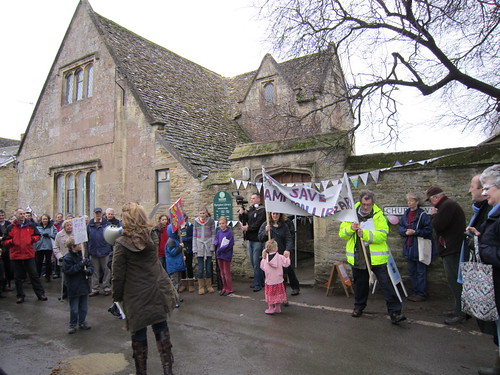Who uses libraries?
von Keren David
People who are poor.
People who are rich
and lots in the middle, squeezed or not
People without computers, who don’t know what the internet is,
People with laptops and wiis and Playstations and ipods.
People without homes.
People with second homes.
People without many books.
People with shelves overspilling.
People with lots of time and
too little time
with not much quiet
or too much quiet.
People whose homes are chilly
and lonely
and dull.
People.
Parents and carers and babies and toddlers.
Children who don’t know what books are.
Children, magically turning letters into words and words into stories.
Children who want to read every book a particular author ever wrote. Because she wrote it just for them.
Or there’s just one book they read again and again and again.
(I still remember my special book, the one that I read week after week after week, till it became part of who I am now and then and forever)
Children and adults who don’t find it easy to learn by jumping
from website to website.
Children who want to find out what and why and how and when and who.
And read the ideas of others for real…
not bite-sized and bullet-pointed on websites and worksheets.
Teenagers with homework to do
Teenagers with nothing to do
Teenagers whose home is empty
Teenagers with no home at all
People who like to browse among books
People who like to discover new writers. Even if those writers were new years ago.
People who want the latest must-read best-selling hit.
Dan Brown, Jacqueline Wilson, the Girl with the Dragon Tattoo.
People who want something else
Something obscure and unpopular and – gasp – uncommercial.
People who don’t like Horrid Henry
or horror
or Horowitz, and who don’t find much else
in WH Smith.
People who hate vampires, werewolves and angels
People who dream
of a dark, dangerous stranger
with a loving, tortured soul
a strange, sweet scent
and gleaming, pointed, uncontrollable
fangs.
People who don’t trust the internet
Who don’t have a kindle, an iphone, an ipad.
Who like the feel and smell of a book, the print on the page, the pages turning
the pictures glowing.
People who want help
and advice
and recommendations from experts
(not volunteers, however well-meaning)
and company,
information
and education
and someone to notice that they’re alive that day. Everyday.
Writing groups and
reading groups and
story-telling sessions and
slimming clubs and
visiting authors and
community noticeboards offering music and cleaning and clubs and anything you need.
Writers who can’t work in a cafe, even though J K Rowling did.
Writers without a Room of their Own.
People who like to think.
Labour voters and
Conservative voters
Liberal Democrats
and people who don’t know who the hell to vote for
because they’re all as bad as each other.
People with a sense
of history
and the future,
of community
of a shared culture
of equality and opportunity hand in hand
of a Big-hearted Society –
where a homeless kid has the same access
to books and warmth, internet and silence as they do at
Eton
(just a random comparison there).
People who complain and mutter and might write a letter or two,
but don’t riot.
Not about libraries.
Not about books.
But then there are
Government ministers who won’t protect libraries
and local councillors trying to cut budgets
Because budgets are easier to cut than bankers’ bonuses. And it’s getting a bit fuzzy, isn’t it? About who was to blame. For the mess we’re all in together.
That’s all of us.
But especially some of us.
And those who think that libraries are a soft target
and out-dated
and unpopular
and could easily be run by volunteers
– because, after all, there will be lots of people with time on their hands –
– not to mention the workshy –
– and the fake disabled, don’t forget them.
And after all, libraries don’t need to buy more books
because everything’s available on the internet
and books are so cheap nowadays
and how much do you have to pay to rent books from a library anyway?
and where is the local library?
and why isn’t it open when I need it to be open?
and why are there so few books?
and isn’t it disgraceful how children leave school unable to read?
What they need are Phonics and Literacy and Extracts and
testing testing testing
testing testing testing
because the economy demands literate workers
who’ve studied relevant subjects
so they can earn money and pay
graduate taxes
because that’s what Britain needs
Isn’t it?
This is happening now.
Libraries are being closed and cut
Librarians are being sacked
In shires and cities and towns
Now.
If we allow it.
Quelle: Almost True: A blog by Keren David, author of When I Was Joe and Almost True
